Introduction
This thesis is premised on the context of Singapore moving towards a Smart City, with 5G technologies across the island by 2025. Technology and digital infrastructure is becoming the primary focus of Singapore’s future economy, to position itself as Asia’s digital technology capital. However, the effects of this digital revolution inevitably leads to a mountain of e-waste – which stands for electric or electronic waste. In fact, e-waste is growing at a staggering rate, as the fastest growing waste stream in the world.
Waste is a pressing environmental issue in Singapore – with Semakau Landfill expected to run out of space by 2035. Despite increased efforts from the government by launching 2019 as a year towards a Zero Waste Nation, the recycling rate still dipped that year due to lower demand for recycled paper in the export market. This is a result of increasing digitalization; a signal that even our waste is becoming more and more electronic.
This thesis is both an exploration and critic of the role of technology and its relationship to the natural environment; it is a subversion of the consumerist notion of ‘what is a good machine’ to one that is sustainable, designed for repair and disassembly. Through identifying the primary challenges with e-waste recycling and the current limitations of the e-waste recycling framework in Singapore, the architecture seeks to address these issues. E-waste turns into a resource pool throughout their various stages of disassembly. Through a shared economy and circular framework, the architecture then enables an ecosystem for the different user types; through agencies of repair, reuse, and upcycling of e-waste into green technology.
Architecture as Machine
Similar to tech machines with impenetrable exterior surfaces, the machine parti starts as a whole cubic massing. It disintegrates through subtractive pixel cubes to form components, the parts of the machine. These parts regroup and attach to a structural frame, forming the whole cube once again. The different stages of cubic form represent the different processes of “the good machine”. The producer sector which produces machines made for disassembly is expressed as a whole cube with subtractive exterior elements. The recycling sector which restores metals to its purest form is expressed as a subtractive frame and components. The public sector which is the primary resource pool is expressed as components. The repair sector which assembles parts of the machine is expressed as structural frame with additive components.
Using the tectonics of steel frame and timber panels, the producer and recycling facilities consist of a flexible frame with removable subtractive timber panels which can be configured based on the interior program. Alternatively, the repair and public facilities are made up of re-used, refurbished shipping containers that are stacked or additive to the steel frame. This interplay between subtractive and additive structure expresses the circular nature of the hypernatural urban mine.
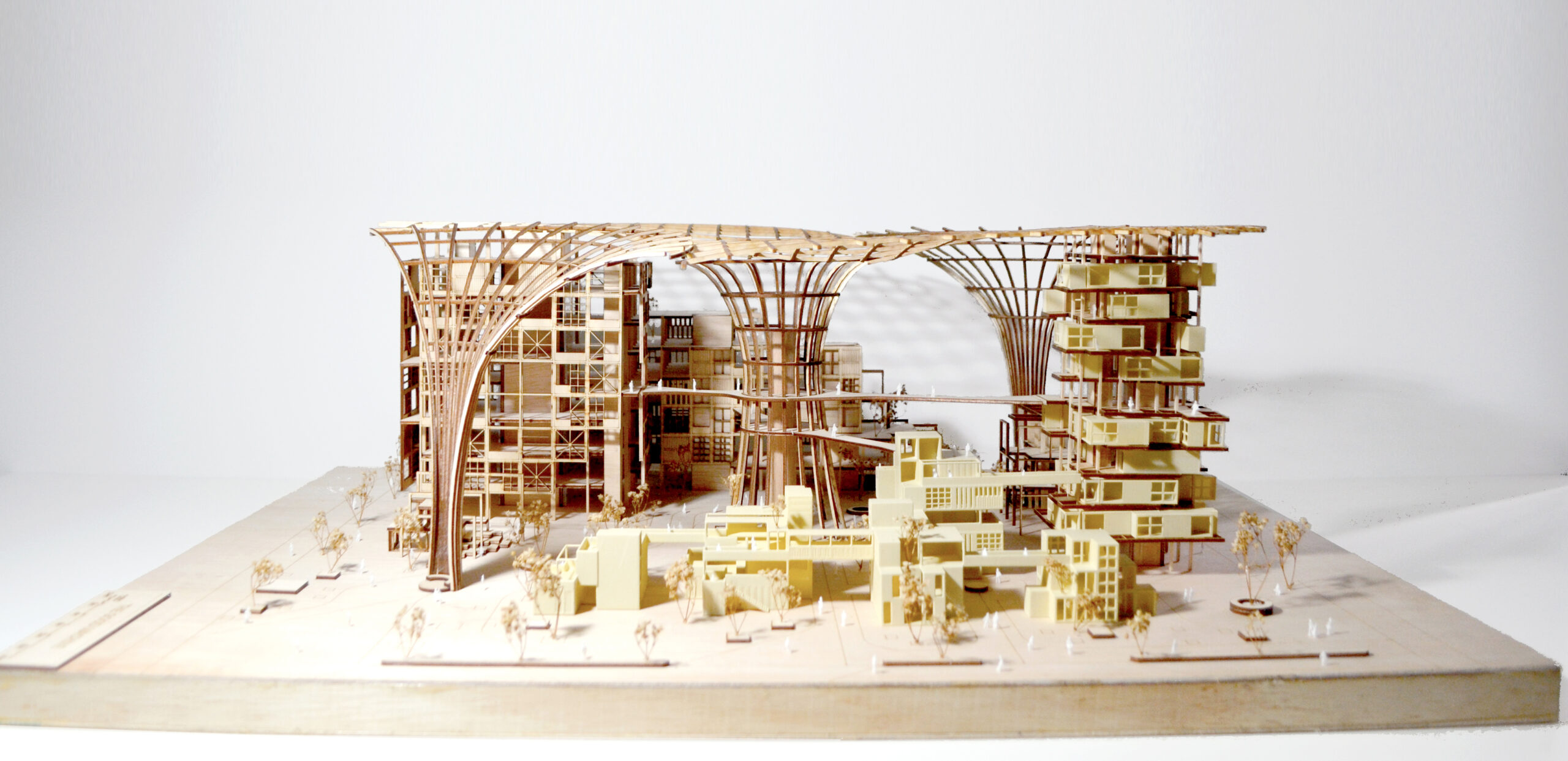
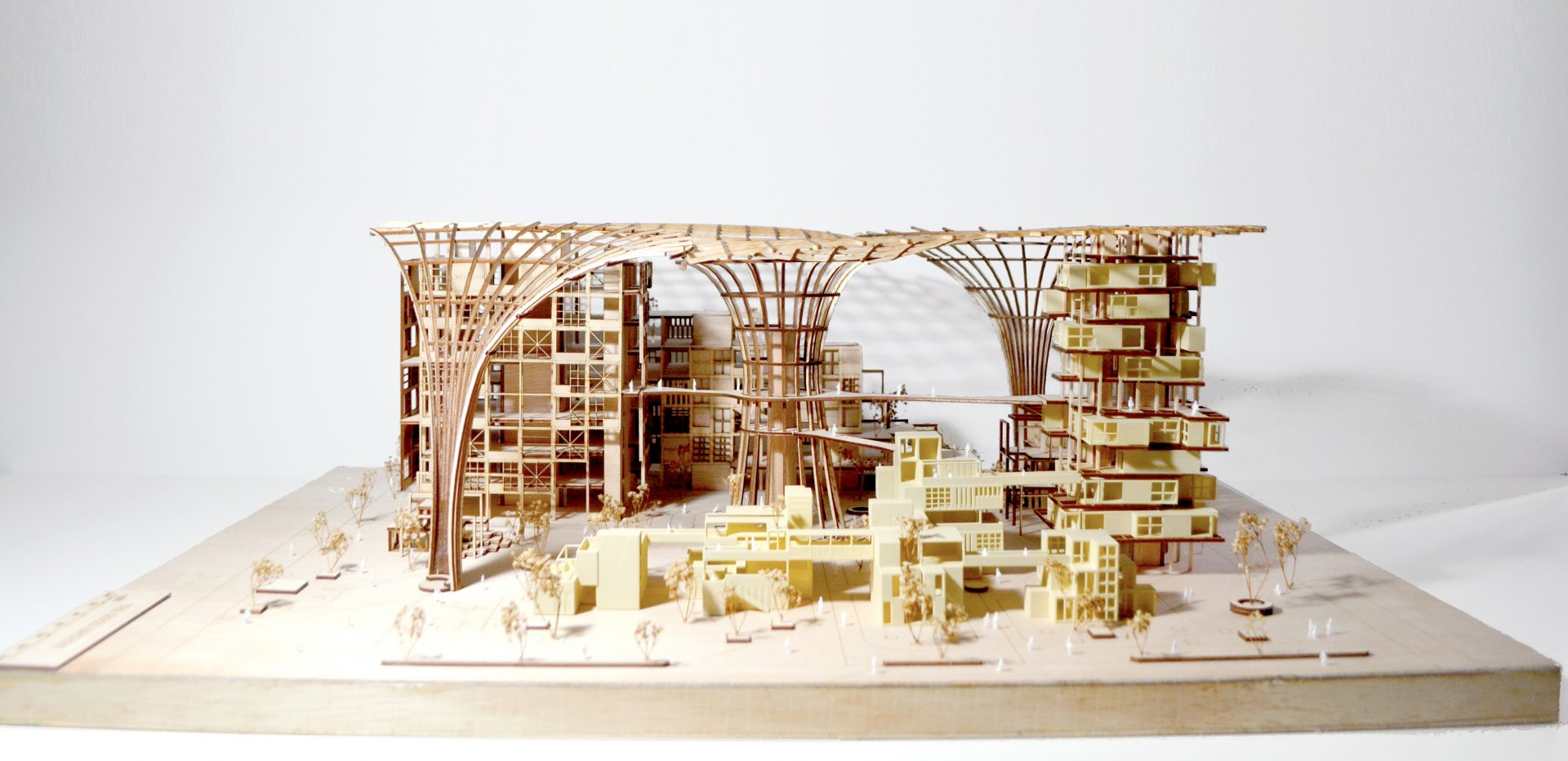
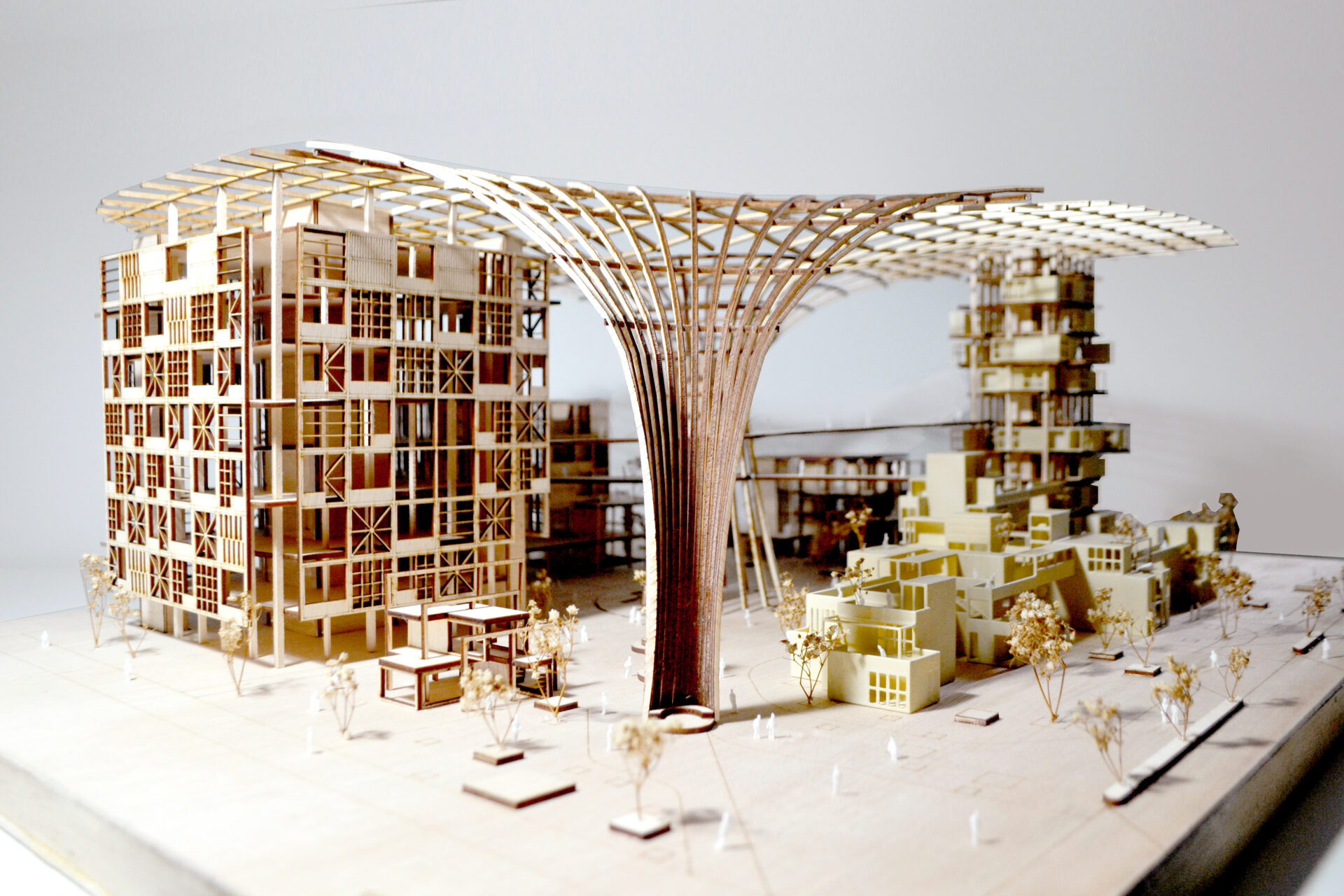
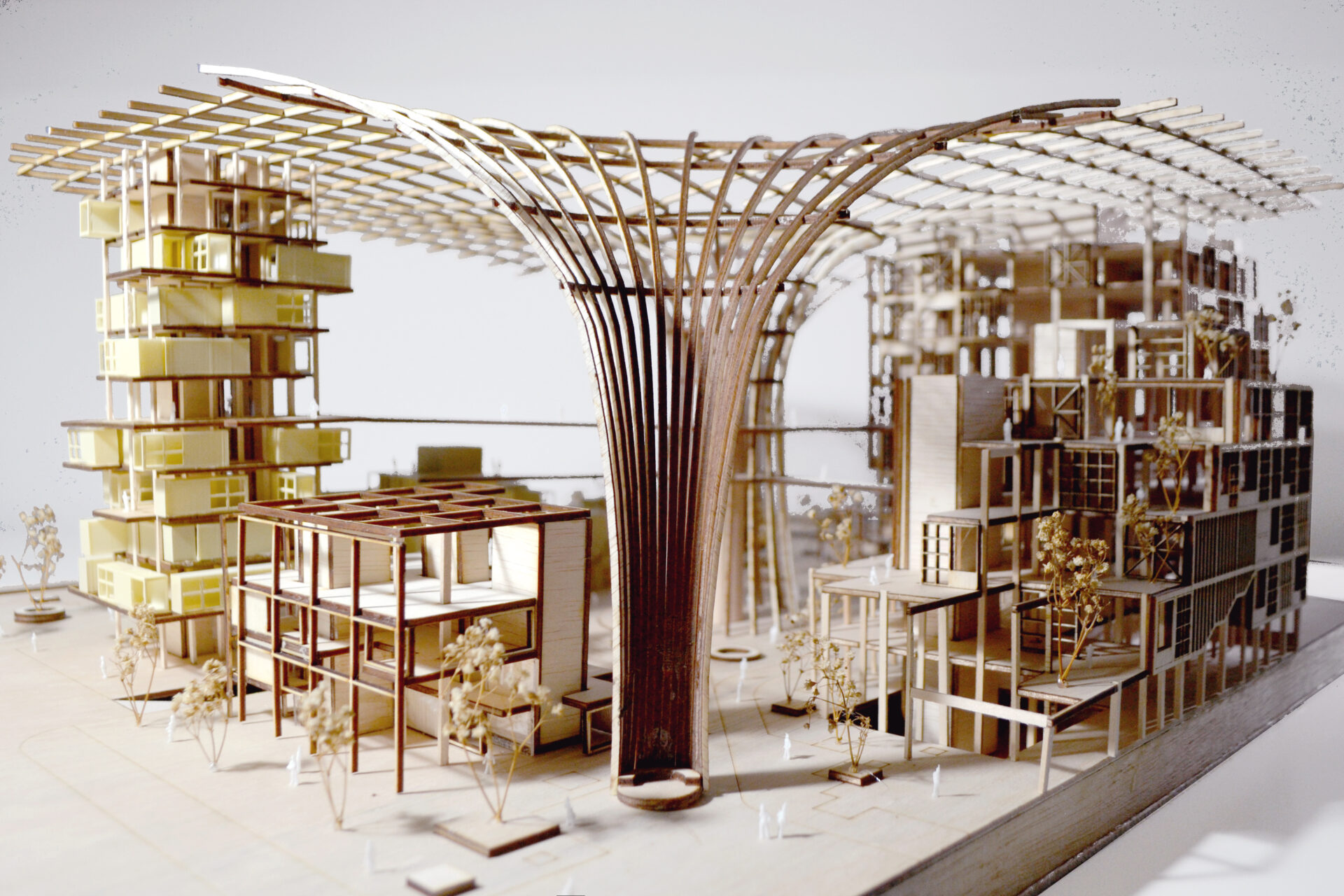
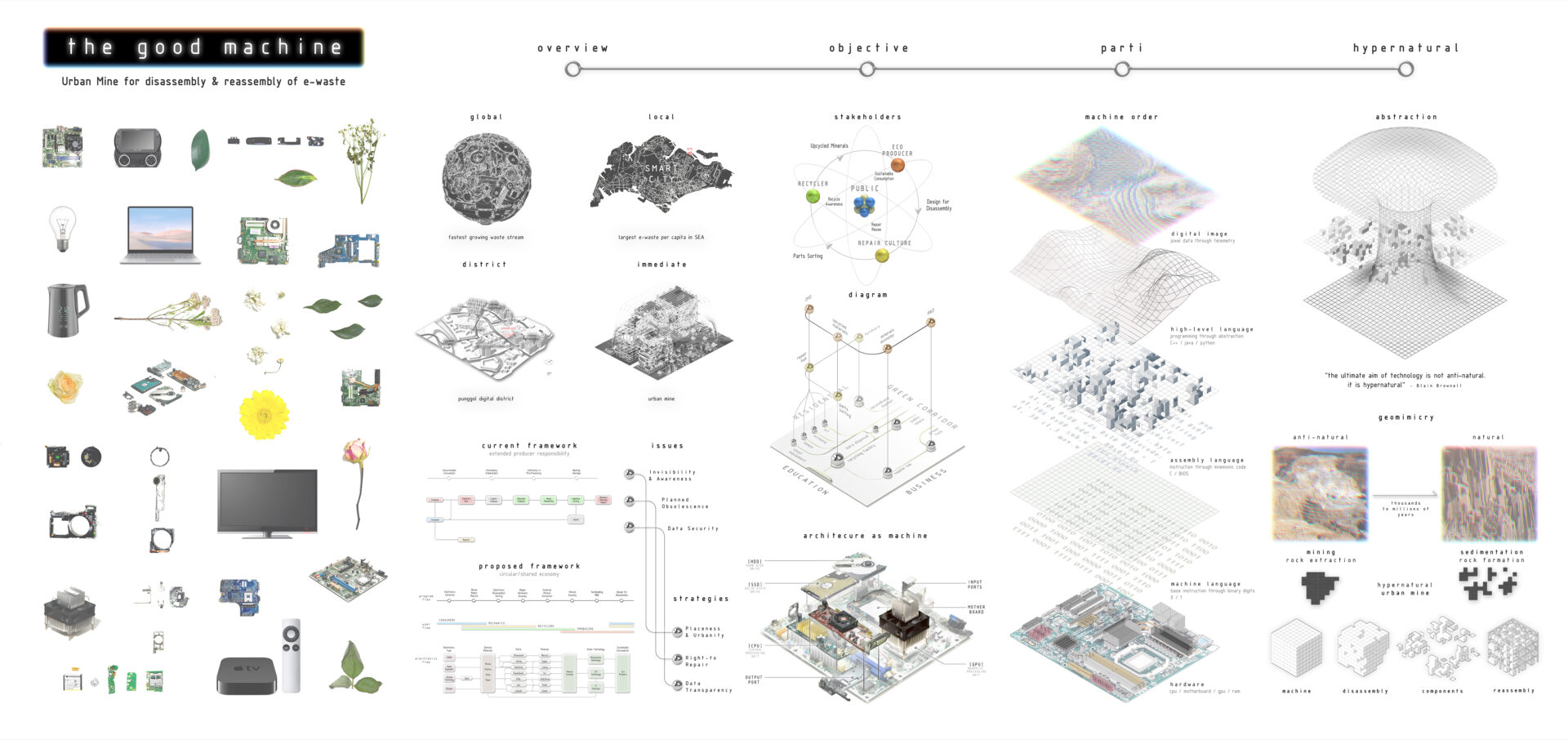
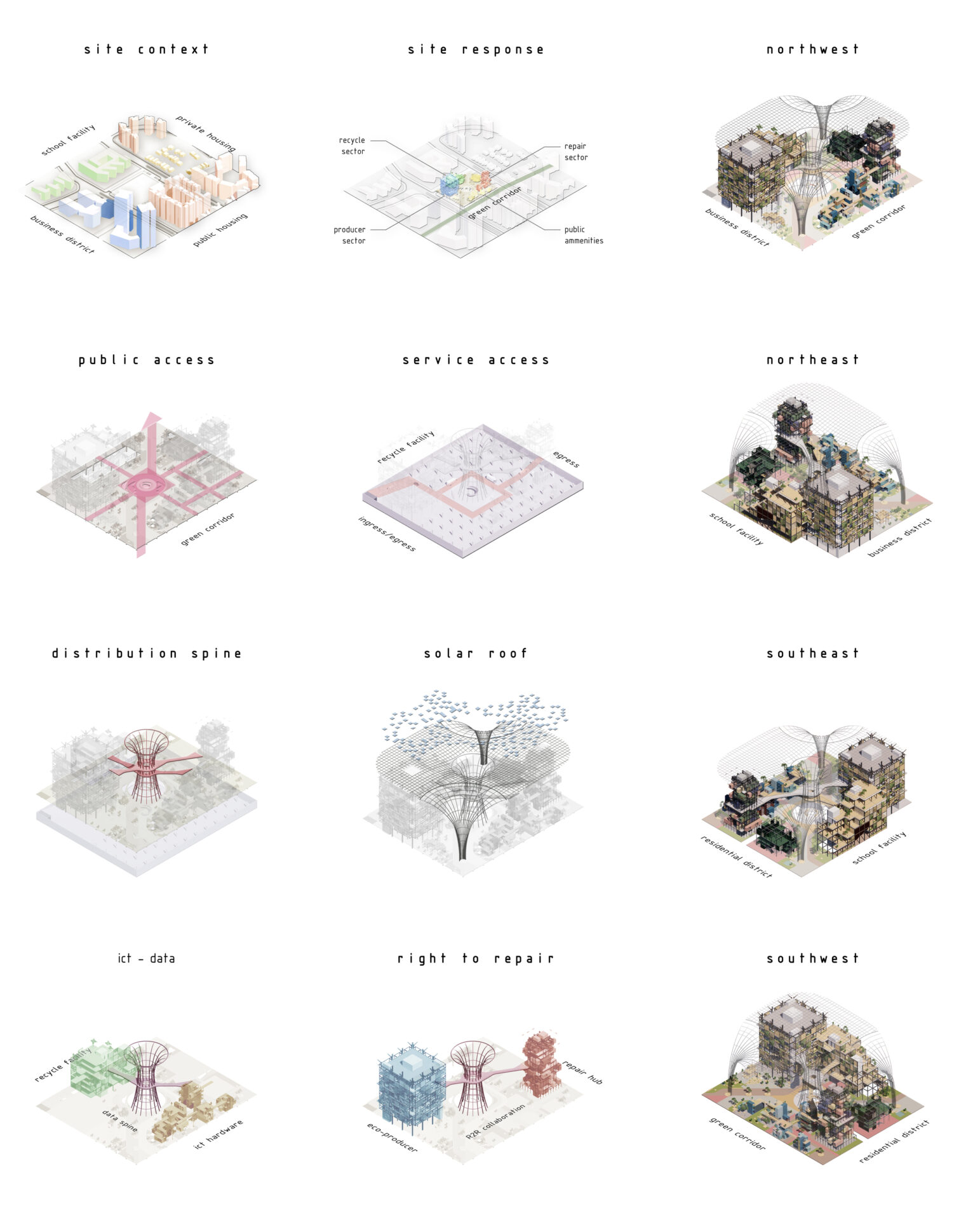
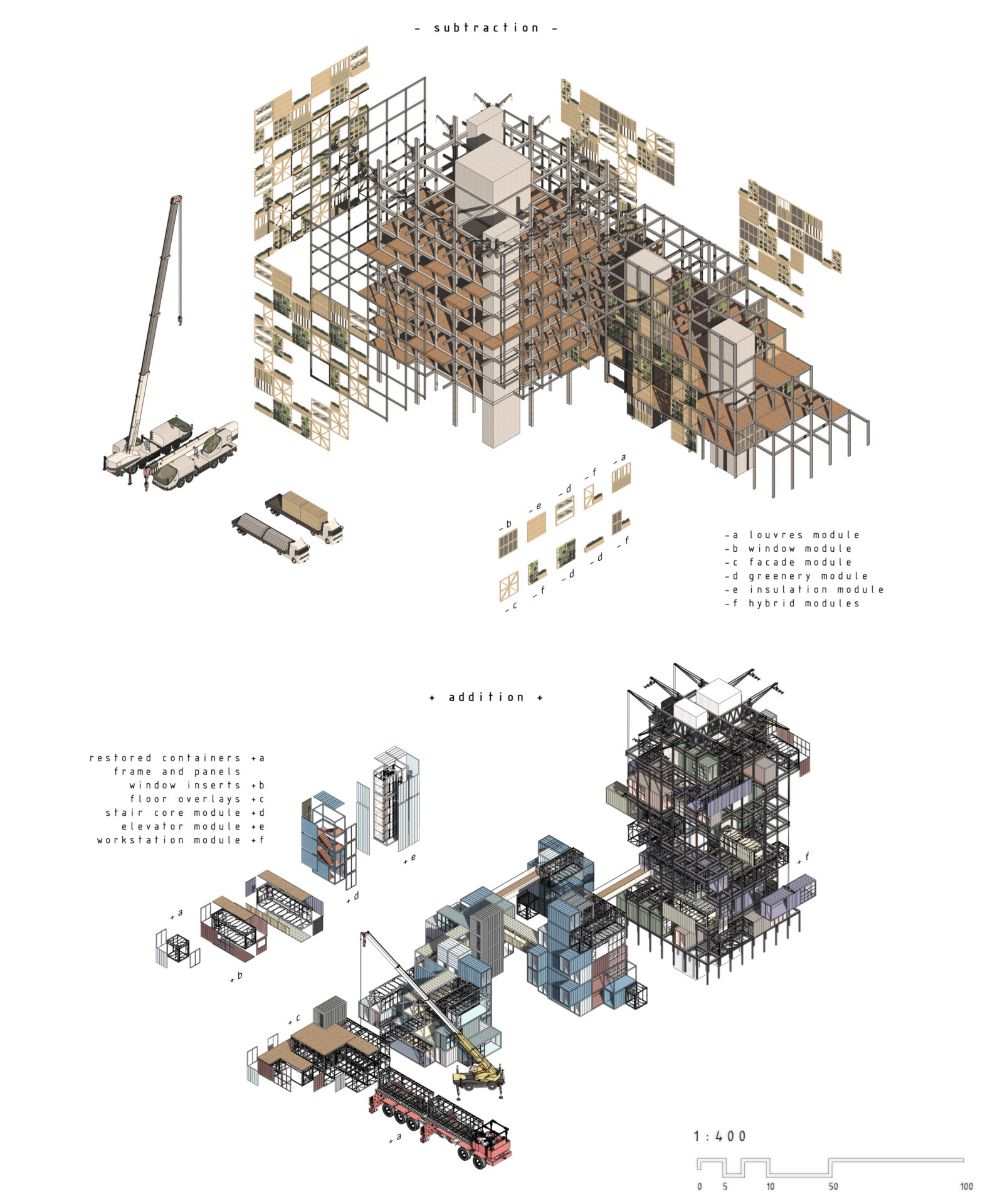
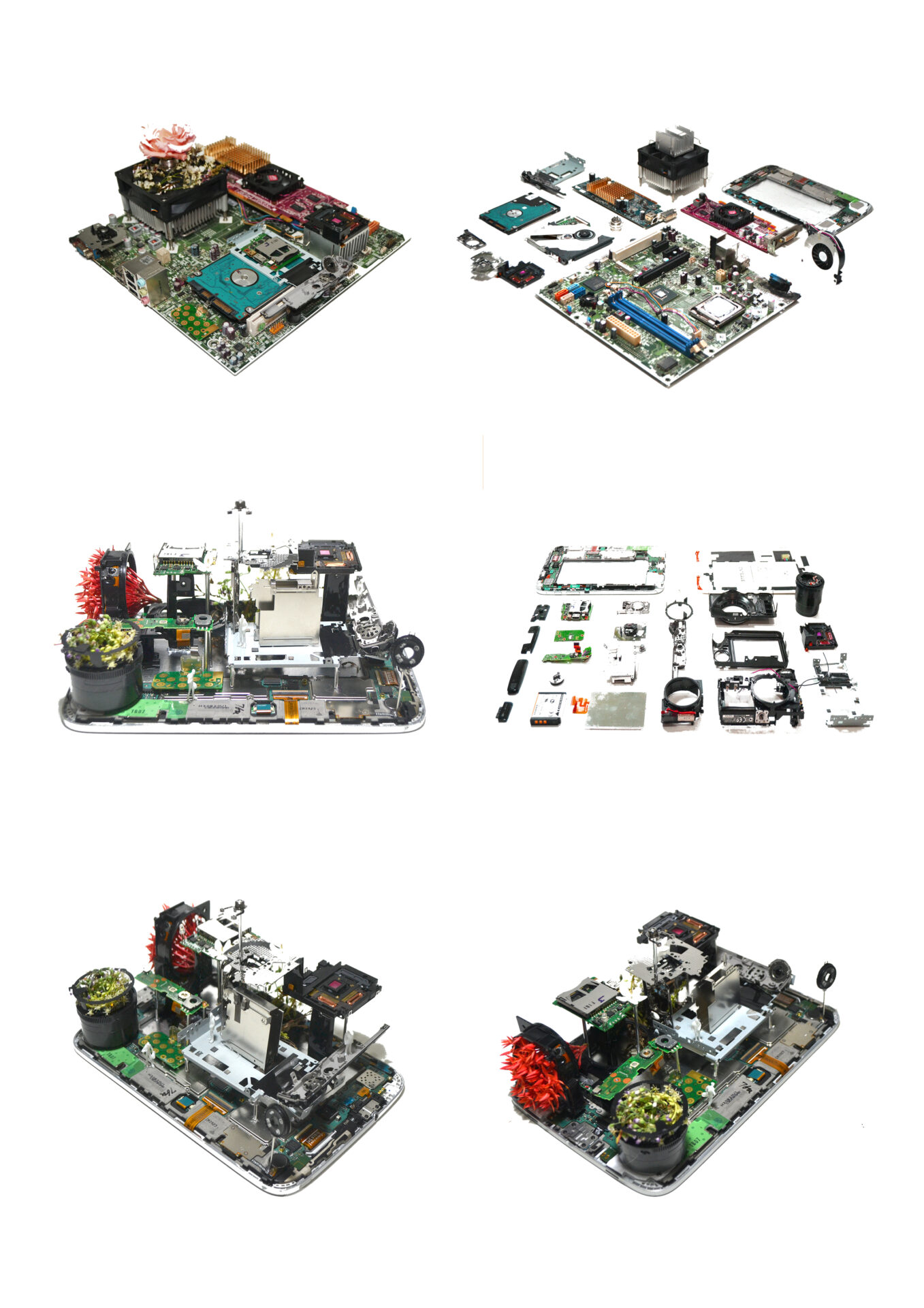
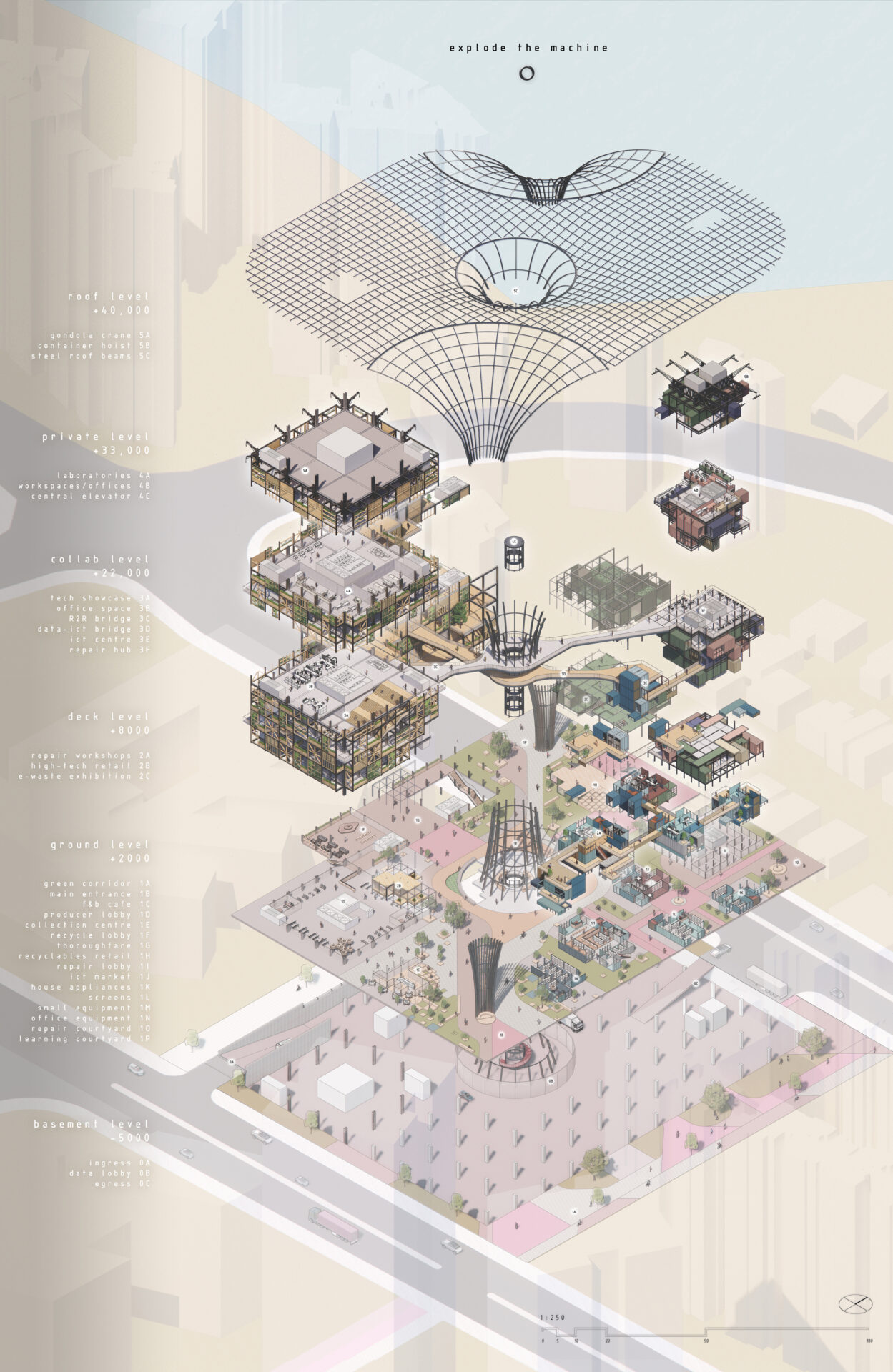
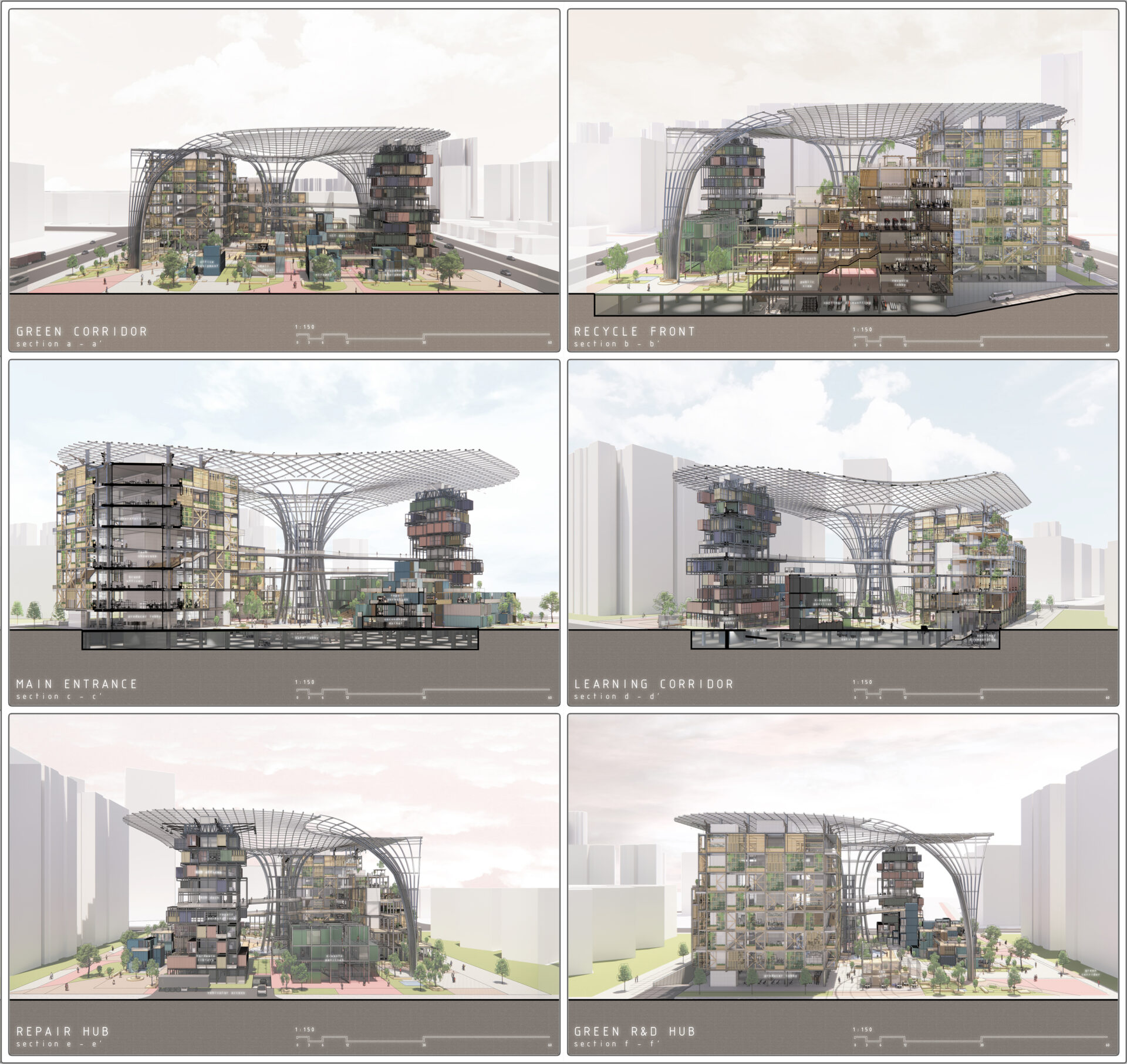
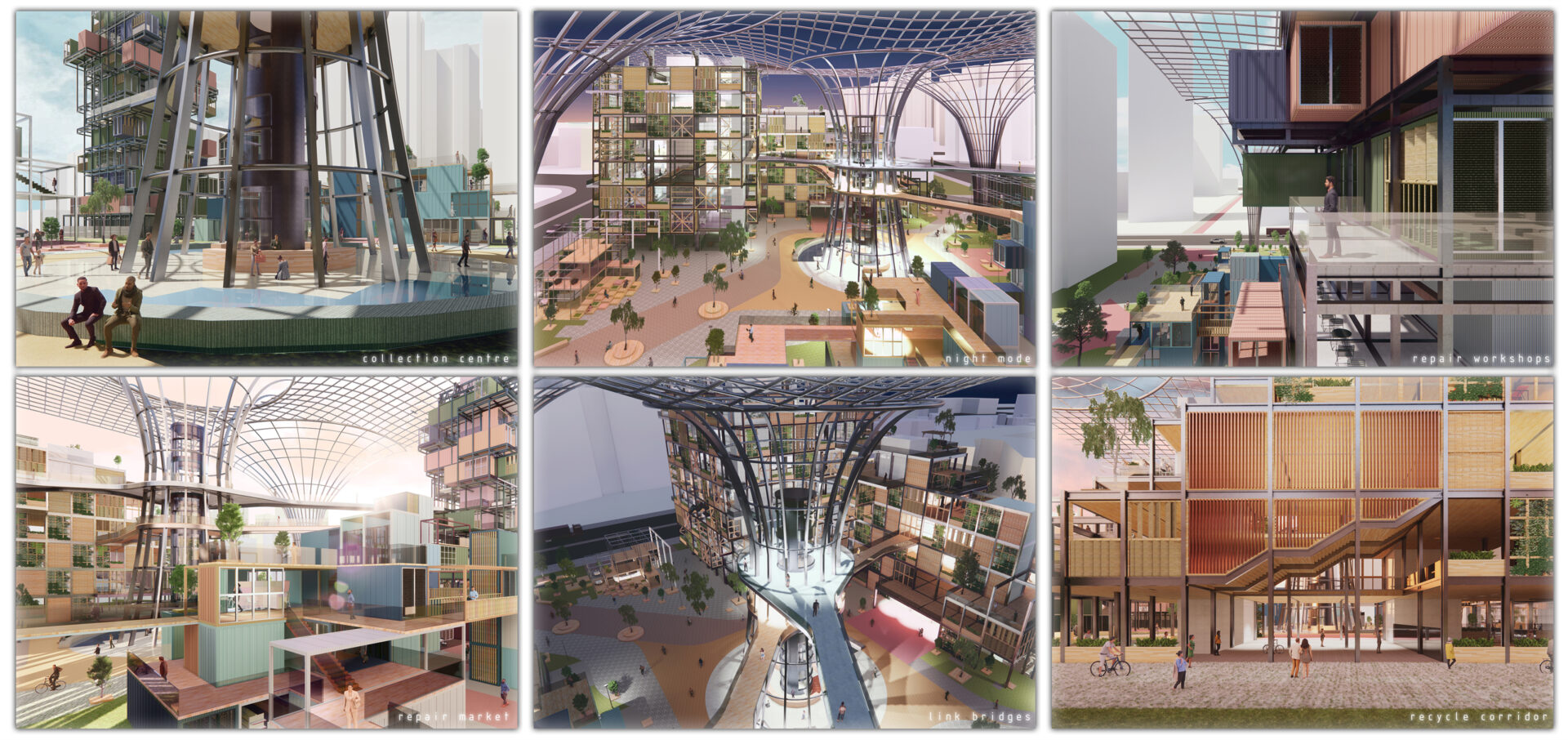
Supervisor's comments:
The Good Machine is an exploration and critic of the impact of the digital revolution on the environment and our society. It is a subversion of the consumerist notion of ‘what is a good machine’ to one that is designed for repair and disassembly. Through identifying the primary challenges with e-waste recycling and the current limitations of the e-waste recycling framework in Singapore, Keith’s architecture becomes a machine for the hypernatural; where e-waste becomes a resource pool throughout their various stages of disassembly. With a shared economy and circular framework, the architecture enables an ecosystem for the different user types ; agencies of repair, reuse, and upcycling of e-waste into sustainable technology.
- Prof. in Practice Richard Ho